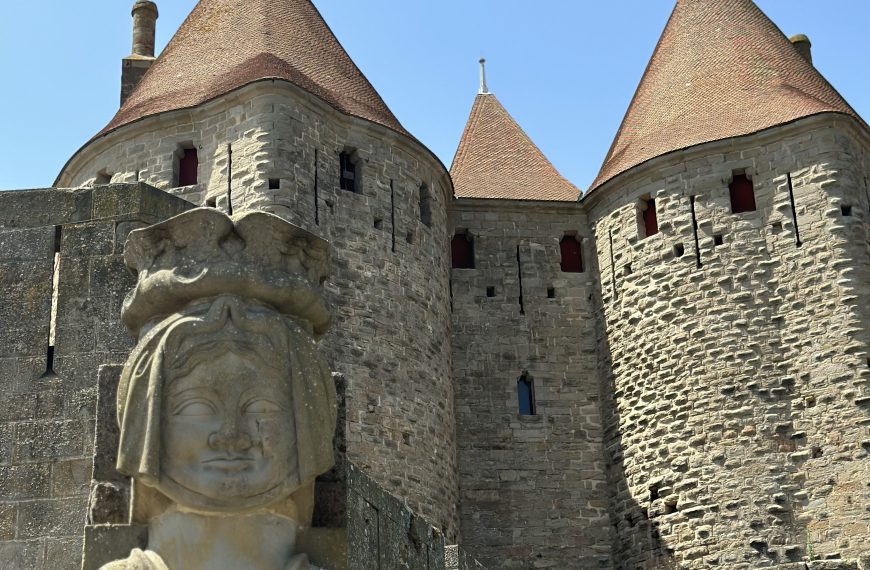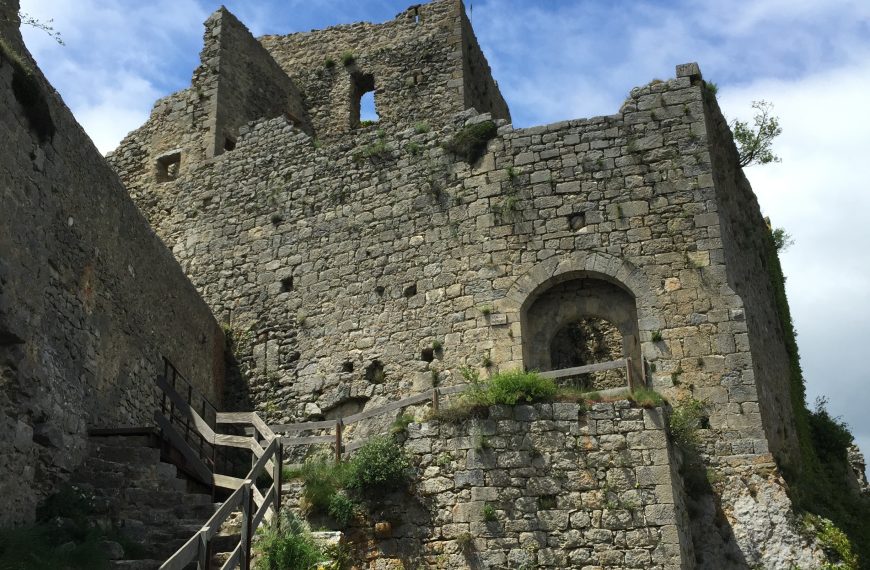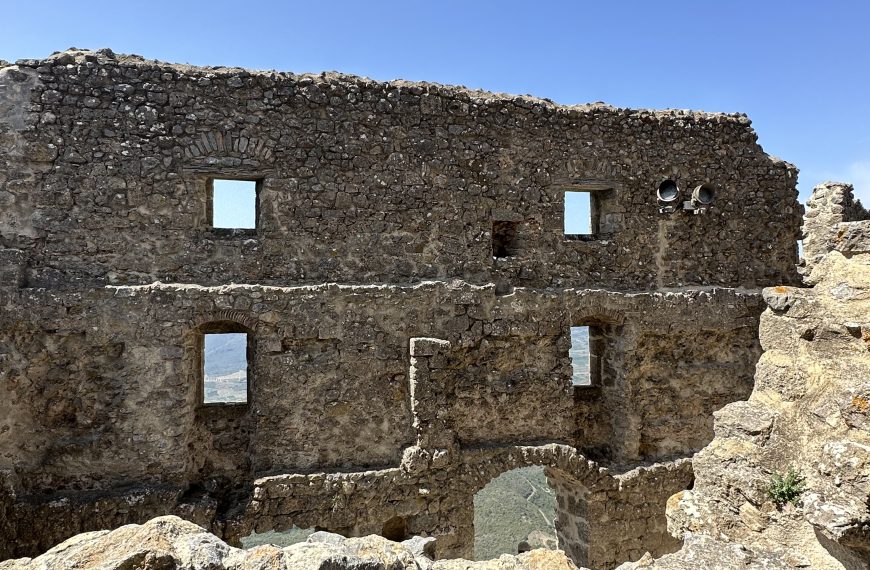Peyrepertuse Castle
The Peyrepertuse Castle served primarily as a fortress, providing defensive capabilities and control over the surrounding territory. Its strategic location allowed it to serve as a border stronghold, defending against incursions from neighboring territories. Additionally, it held political significance as a symbol of power and authority for the ruling lords and counts who controlled it over the centuries.
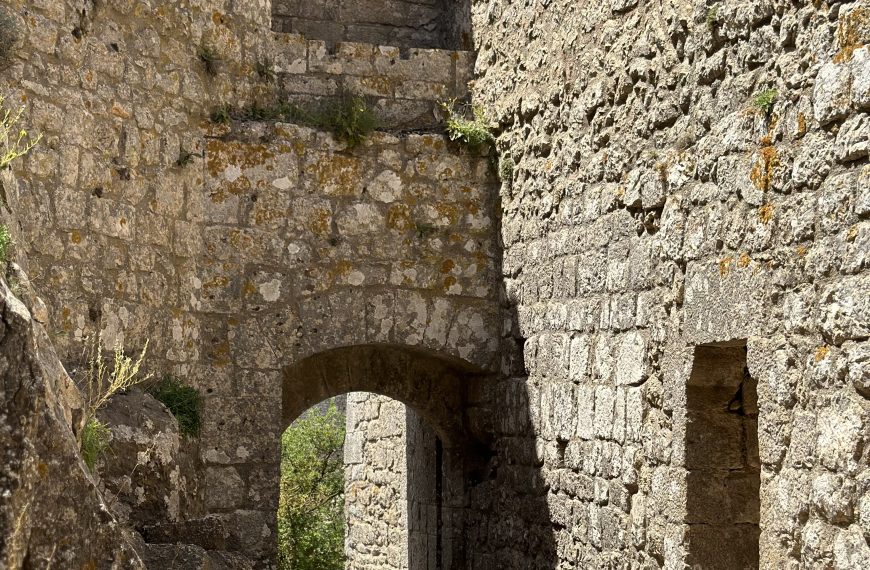
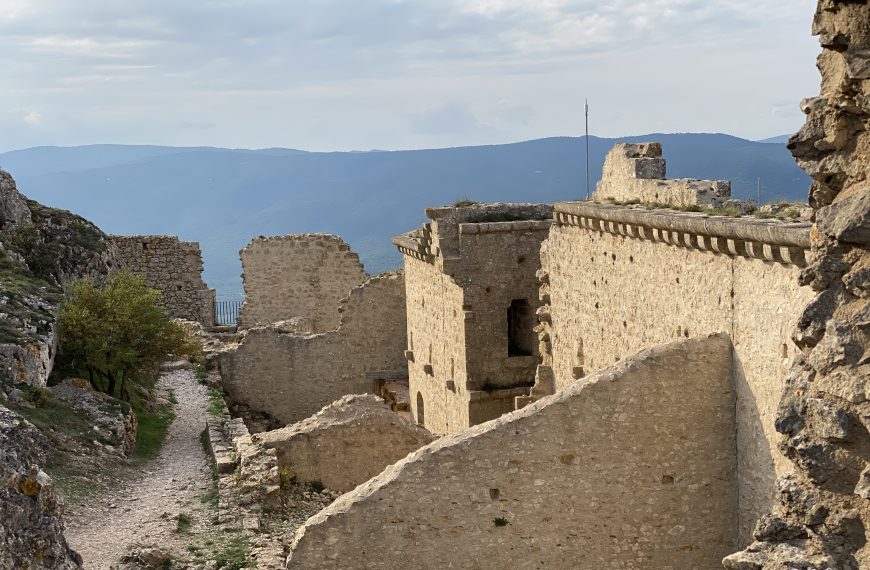
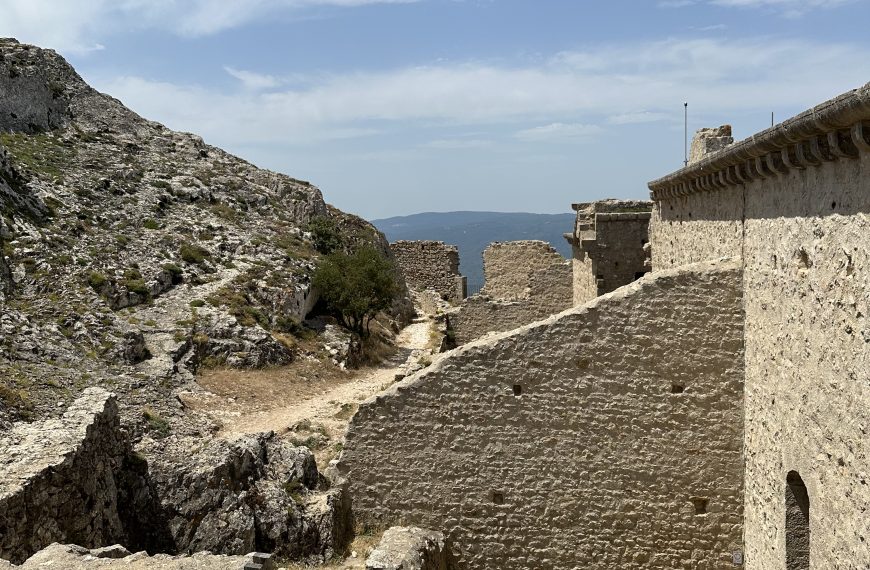
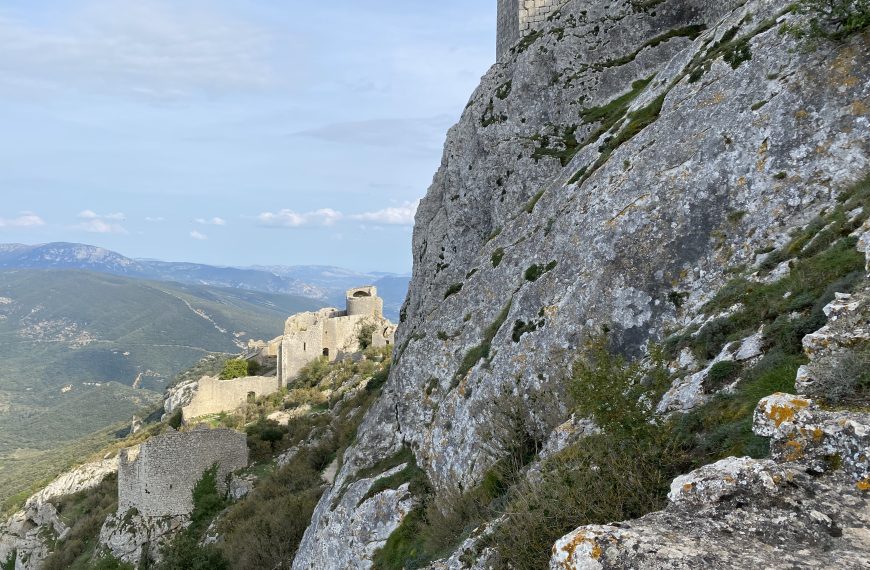
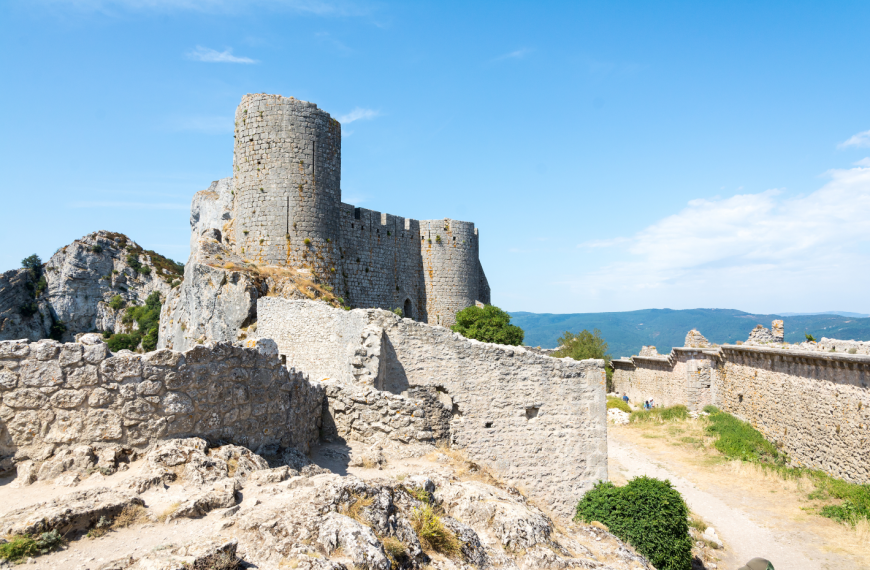
Peyrepertuse Castle
Peyrepertuse Castle was built in the 13th century, with the construction of the Sant Jordi dungeon occurring in 1250-51.
Its historical references date back to 806, with subsequent changes and additions made over the centuries.
Located in the commune of Duilhac-sous-Peyrepertuse, in the Aude département of France, Peyrepertuse Castle sits atop a limestone ridge at an altitude of about 800 meters in the French Pyrénées.
Peyrepertuse is a ruined fortress located in the Aude department in the Occitanie region of southern France. Situated on a high limestone ridge in the Corbières mountains, it is one of the “Five Sons of Carcassonne,” a series of strategic fortresses meant to defend the border between France and Aragon (now part of Spain).
Key Features and Historical Significance:
Historical Importance:
- Origins: The castle’s origins date back to Roman times, but it gained prominence during the medieval period. It became particularly important in the 13th century during the Albigensian Crusade, a military campaign initiated by the Catholic Church to eliminate the Cathar heresy in the Languedoc region.
- Royal Fortress: After the crusade, Peyrepertuse was incorporated into the French royal domain in 1240, further fortified and expanded to serve as a royal fortress.
Architectural Highlights:
- Size and Structure: The castle is expansive, measuring about 300 meters in length. It consists of two main parts: the lower castle, which includes the original fortress, and the upper castle, which was added later.
- Saint-Jordi Keep: The upper part of the castle includes the Saint-Jordi keep, built by Louis IX in the 13th century. This section offers a stunning panoramic view of the surrounding landscape.
- Chapel and Citadel: The castle also features a small chapel dedicated to Saint Mary and several citadels, which were used for defense and habitation.
Scenic Location:
- Elevated Position: Peyrepertuse is perched at an altitude of about 800 meters, providing breathtaking views of the Corbières region and the Pyrenees mountains. The castle’s dramatic location on a rocky outcrop adds to its imposing and picturesque nature.
Tourist Attraction:
- Popular Site: Today, Peyrepertuse is a popular tourist destination, attracting visitors interested in medieval history, architecture, and natural beauty. The castle is accessible via a steep path, and its ruins offer a fascinating glimpse into its storied past.
- Cultural Events: The site also hosts various cultural events and medieval reenactments, enhancing the visitor experience and bringing history to life.
Peyrepertuse, with its rich history, impressive architecture, and stunning location, is a remarkable example of a medieval fortress and an enduring symbol of the region’s heritage.
On your way to Peyrepertuse, make sure to stop by the village of Cucugnan and grab some bread and pastries from the local bakery.
Opening Times & Prices
Opening Times
Monday : 9 am - 6:30 pm
Tuesday : 9 am - 6:30 pm
Wednesday : 9 am - 6:30 pm
Thursday : 9 am - 6:30 pm
Friday : 9 am - 6:30 pm
Saturday : 9 am - 6:30 pm
Sunday Saturday : 9 am - 6:30 pm
Prices
Group ticket (Self Guided) : 6€
Group ticket (Guided Tour) : 6€ - 65€
Group ticket (commented) : 0€ - 12€
Group ticket ( dramatized visit) : 12€
Related Castles
City of Carcassonne
Discover the enchanting world of the Carcasonne’s Castle, where history, mystery, and beauty converge. Whether you’re a history buff, a lover of legends, or simply...
Read MoreMontsegur Castle
Primarily, the Puilaurens Castle functioned as a fortified refuge and defensive stronghold. It played a significant role during the Albigensian Crusade as a refuge for...
Read MorePuilaurens’s Castle
Primarily, the Puilaurens Castle functioned as a fortified refuge and defensive stronghold. It played a significant role during the Albigensian Crusade as a refuge for...
Read MoreQuéribus’s Castle
This Castle has a long history dating back to medieval times. It has been listed as a monument historique by the French Ministry of Culture...
Read More
